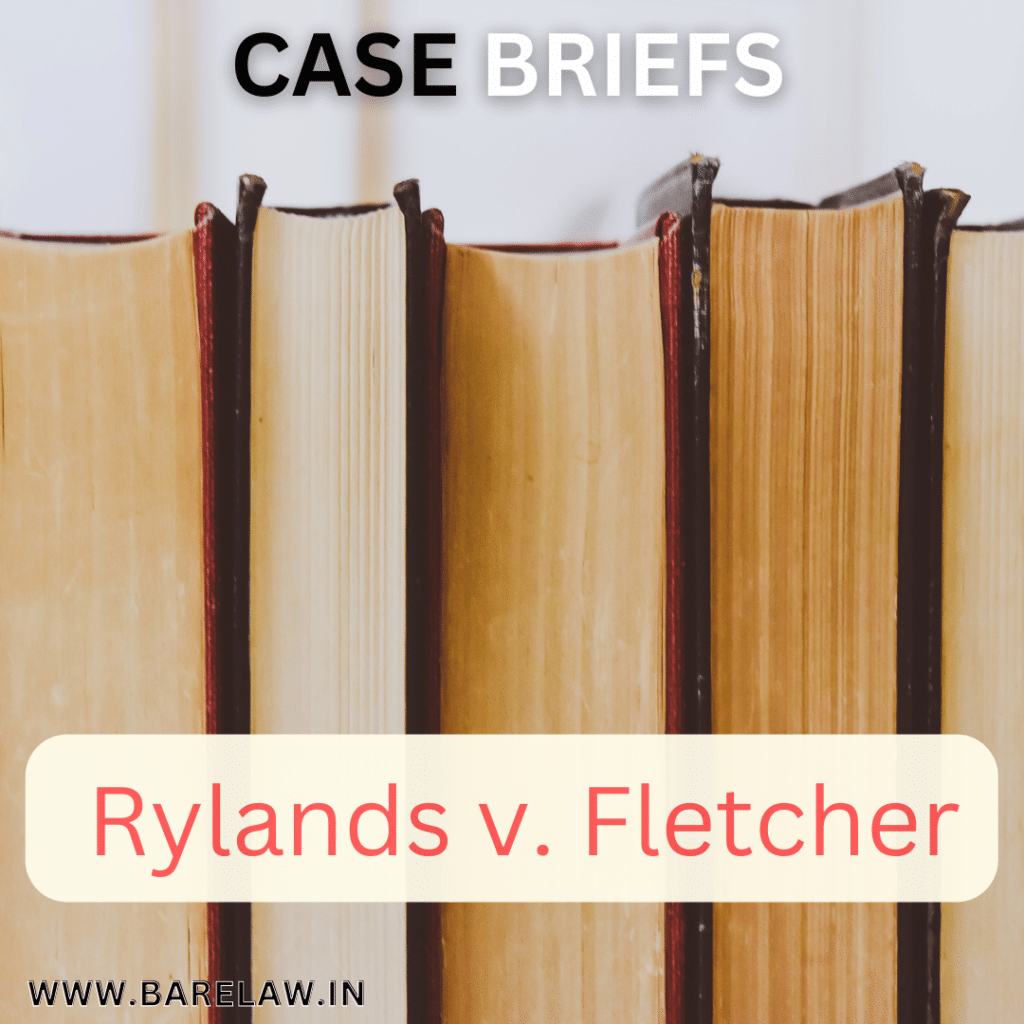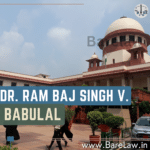
Case Name: Rylands v. Fletcher
Citation: LR 3 HL 330
Court: House of Lords
Date of Decision: 17 July 1868
Parties:
Plaintiff/Appellant – Thomas Rylands
Defendant/Respondent – Fletcher
Facts:
The plaintiff, Thomas Rylands, owned a cotton mill in Lancashire, England. The defendant, Fletcher, leased a neighboring piece of land on which he had constructed a reservoir to supply water to his own mill. During construction of the reservoir, the workers had discovered a series of old coal shafts which ran from the defendant’s land under the plaintiff’s land. The defendant had not taken any steps to block the shafts, and they had filled with water from the reservoir.
The following year, heavy rainfall caused the water from the reservoir to flood the old coal shafts, which in turn flooded the plaintiff’s mine. As a result, the plaintiff’s mine was rendered inoperable and he suffered significant financial loss.
The plaintiff sued the defendant for damages, alleging that the flooding was caused by the defendant’s negligence in failing to block the coal shafts.
Issue:
The main issue before the court was whether the defendant could be held liable for the damage caused by the flooding of the plaintiff’s mine.
Holding
The House of Lords held that the defendant was liable for the damage caused by the flooding of the plaintiff’s mine. The court reasoned that the defendant had brought onto his land a dangerous thing (the water in the reservoir) which had the potential to cause damage if it escaped, and he had failed to take adequate precautions to prevent such escape. As a result, the defendant was liable for any damage caused by the escape of the water, even if the escape was not due to his negligence.
The court established the principle of strict liability for “non-natural” uses of land, which holds that a person who brings onto their land something that is likely to do harm if it escapes is liable for any damage caused by such escape, regardless of whether they were negligent in causing the escape.
Disposition:
The court found in favor of the plaintiff and awarded damages for the loss suffered due to the flooding of his mine.
Summary:
In the case of Rylands v. Fletcher, the House of Lords held that the defendant, Fletcher, was liable for the damage caused by the flooding of the plaintiff’s mine. The court established the principle of strict liability for “non-natural” uses of land, which holds that a person who brings onto their land something that is likely to do harm if it escapes is liable for any damage caused by such escape, regardless of whether they were negligent in causing the escape.
In this case, the defendant had constructed a reservoir on his land to supply water to his own mill, and in doing so, he had allowed water to accumulate in old coal shafts that ran from his land under the plaintiff’s land. When heavy rainfall caused the water to flood the old coal shafts, it in turn flooded the plaintiff’s mine, causing significant financial loss.
The court found that the defendant had brought onto his land a dangerous thing (the water in the reservoir) which had the potential to cause damage if it escaped, and he had failed to take adequate precautions to prevent such escape. As a result, the defendant was held liable for any damage caused by the escape of the water, even if the escape was not due to his negligence.
The court found in favor of the plaintiff and awarded damages for the loss suffered due to the flooding of his mine. This case established the principle of strict liability in tort law for non-natural uses of land, which is still applied today in similar cases.





